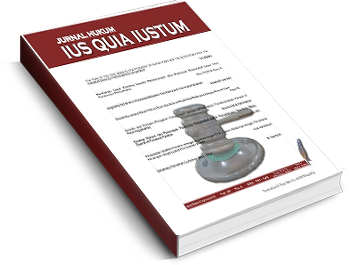Main Article Content
Abstract
In the legal policy level, the government of Indonesia has already had the policies to assist the justice seekers who are financially weak to have an access to justice through court. There are two research problems in this matter. First, does the policy on the legal assistance as stipulated in Law Number 16 of 2011 work optimally for the justice seekers who are financially weak? Second, how is the implementation of the policy on the legal assistance in the practices? The normative research was conducted to answer those two questions, through document data such as Law No.48 of 2009 on The Principles of Justice Power, Law No. 8 of 2003 on Advocate, and Law No. 16 of 2011 on Legal Assistance, and the implementation of those regulations in the practices in several places. The conclusion obtained from the research is: First, it is not yet optimum since the policy especially in terms of budget allocation of the legal assistance is still low. The professional lawyers tend to avoid their obligation to free give legal assistance to the poor. Second, in practice, the legal assistance is not yet enjoyed by the poor justice seekers. The economic and good will are the influencing factors.
Keywords
Article Details
Authors who publish with this journal agree to the following terms:
a. Authors retain copyright and grant the journal right of first publication with the work simultaneously licensed under a Creative Commons Attribution License that allows others to share the work with an acknowledgement of the work's authorship and initial publication in this journal.
b. Authors are able to enter into separate, additional contractual arrangements for the non-exclusive distribution of the journal's published version of the work (e.g., post it to an institutional repository or publish it in a book), with an acknowledgement of its initial publication in this journal.




